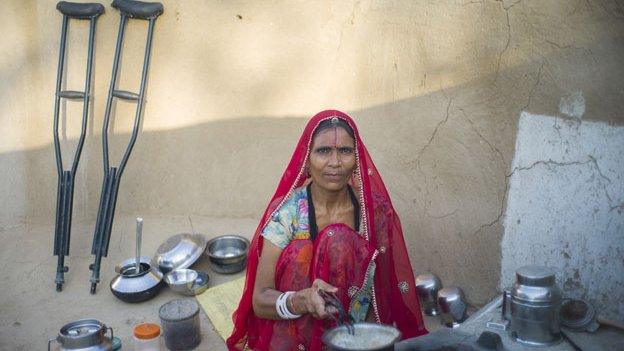India cataracts scandal: Arrest over 'botched' surgery
- Published
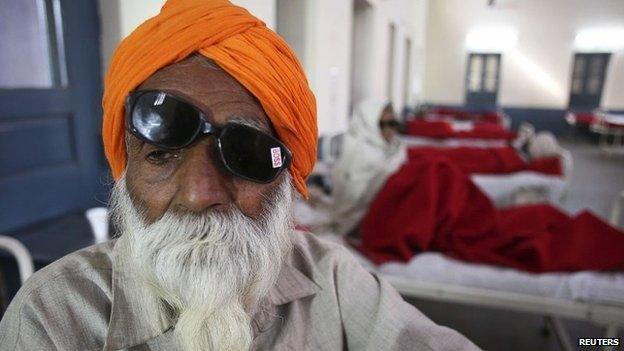
Doctors have not established the cause of the eye infections
A charity owner who organised cataract surgery in India has been arrested after 10 of his patients were left at risk of partial sight loss.
Officials suggested the patients had contracted infections at the charity's medical camp in Amritsar, Punjab state.
Manjit Joshi, who set up the camp, was detained by police.
India's medical infrastructure is under intense scrutiny after 15 women died following sterilisation surgery in the central Indian state of Chhatisgarh.
Tens of thousands of older people are operated on for cataracts in charity-run camps and government hospitals every year.
The operations are generally considered to be low risk and easy to perform.
The BBC's Sanjoy Majumder in Amritsar says all of the cataract patients who claim to have lost their sight were poor villagers attracted by the offer of free treatment.

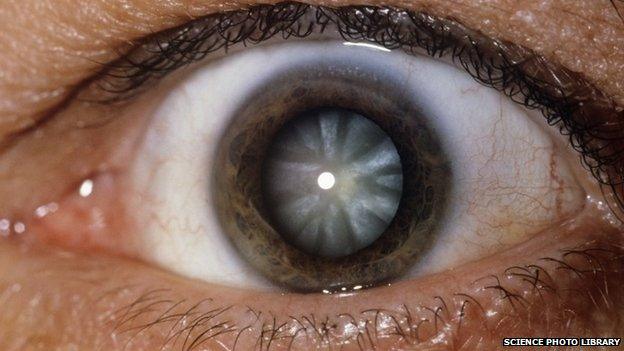
Analysis: Philippa Roxby, health reporter, BBC News
Cataracts are the main cause of impaired vision worldwide. They are cloudy patches that develop in the lens of the eye and can cause blurred or misty vision, which can become worse over time. Cataracts are very common, especially in older people.
Surgery to remove cataracts is a relative straightforward procedure, which is usually carried out under local anaesthetic. During the operation, the surgeon makes a tiny cut in the eye so the affected lens can be removed. The surgeon then inserts a small plastic lens in its place.
The risk of serious complications as a result of cataract surgery is small. The most common complication is vision becoming cloudy again. This can happen when a skin or membrane grows over the back of the lens implant months or years later.
Other complications are much rarer. There is a very small risk of permanent sight loss in the treated eye from the operation.

Mr Joshi organised the cataract surgery in the Gurdaspur district of Amritsar on 4 November.
Before his arrest, he told the BBC that 49 people had been treated and all had received proper care.
However, some 20 patients later said they had not been able to see since removing their bandages.
Our correspondent says 10 of those patients are in danger of losing sight in one eye, and one patient who had already lost sight in one eye was in danger of going blind.
Earlier reports had indicated that a doctor who carried out the surgery had also been arrested.
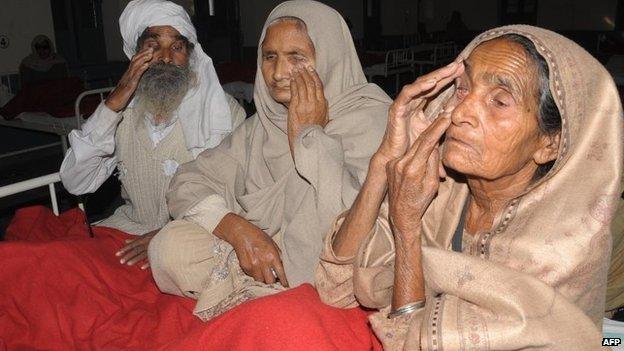
It is not yet known whether the patients have permanently lost their sight
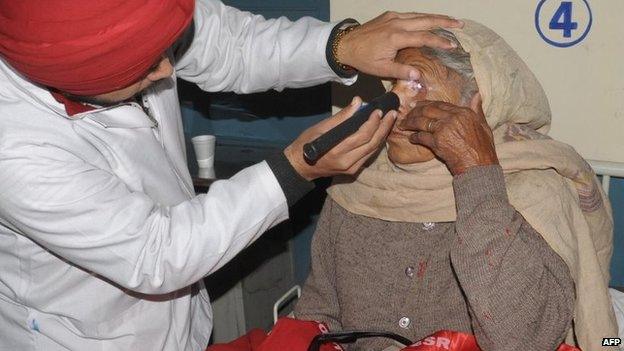
The patients are now being treated by doctors in an Amritsar hospital
The cause of the problem was not clear, with officials suggesting the patients had contracted infections either as a result of a lack of proper equipment, or because the equipment was not sterilised.
Dr Rajiv Bhalla, Amritsar's chief medical officer, said the charity did not have proper permission to set up the camp.
It is not the first time cataract surgery has hit the headlines in India.
Between 2008 and 2009, 14 patients lost their sight after contracting infections in northern Uttar Pradesh state.
And in August 2008, eight patients lost their eyesight and 21 became partially blind after free eye surgery in Tamil Nadu.
- Published20 February 2014
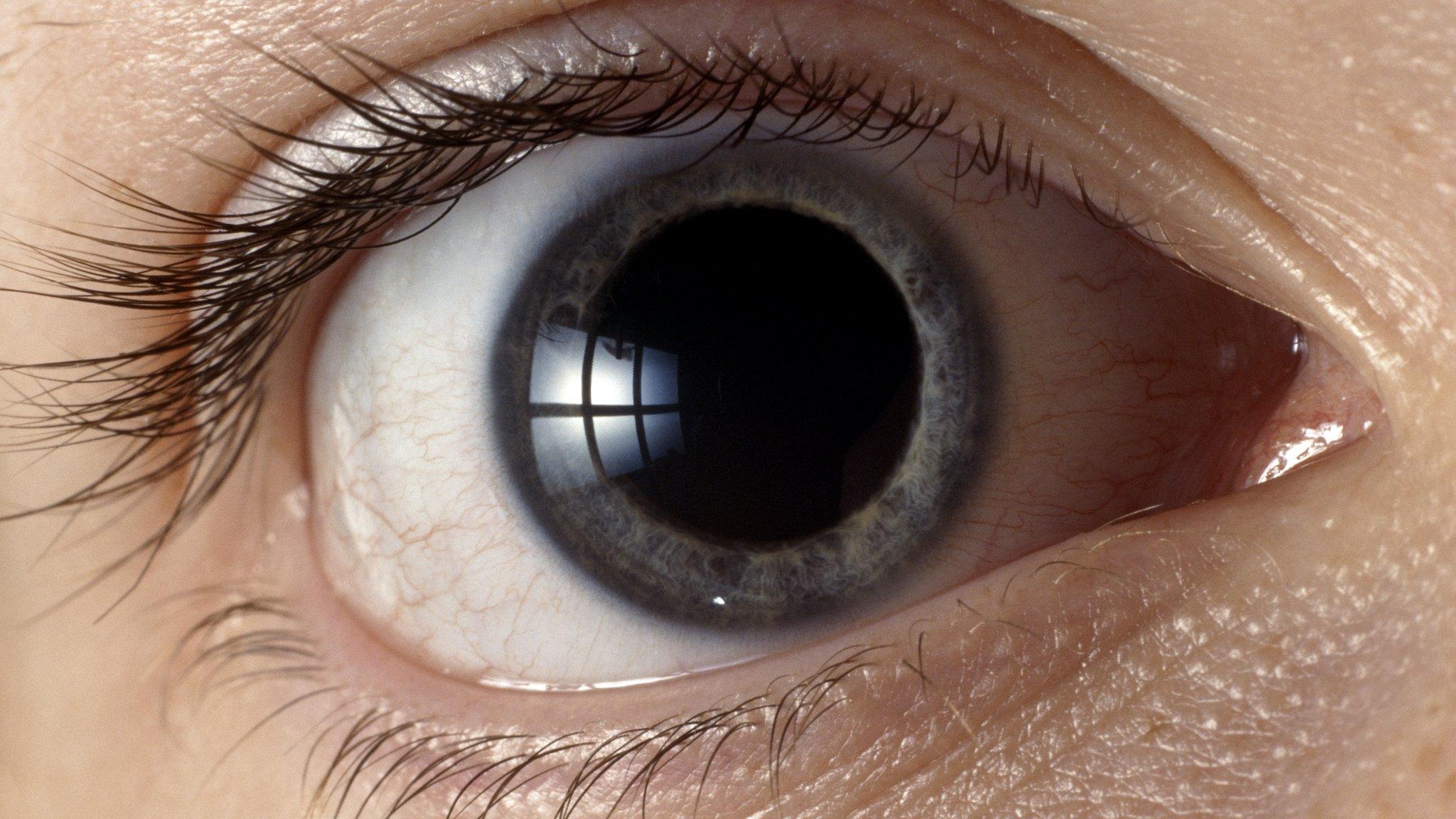
- Published2 December 2014
